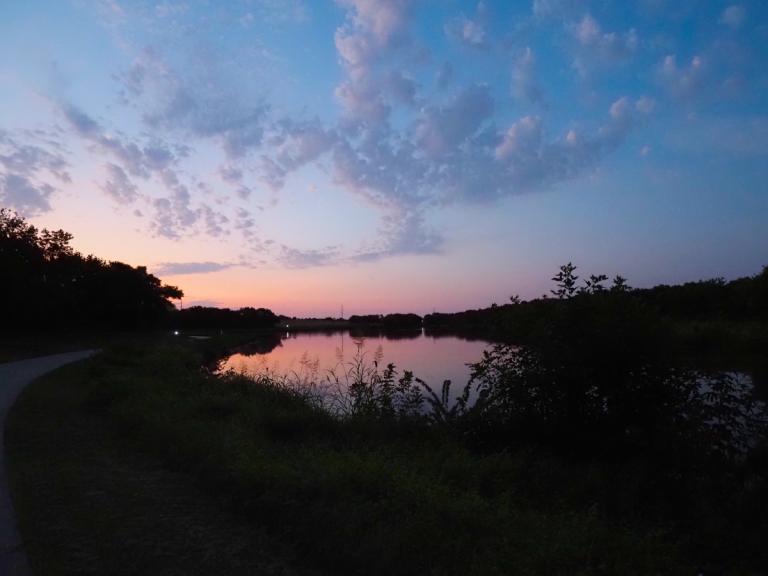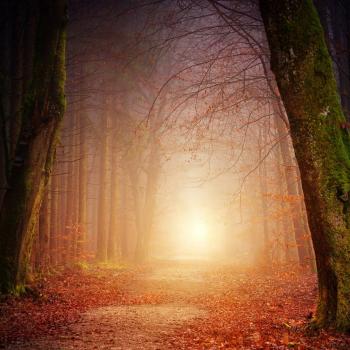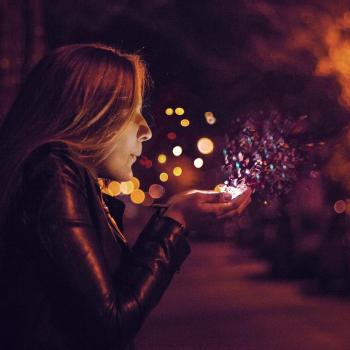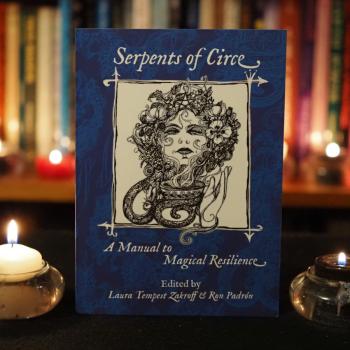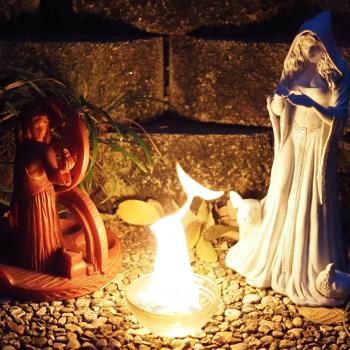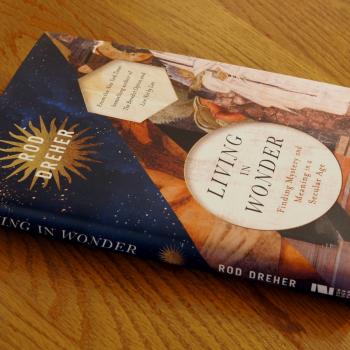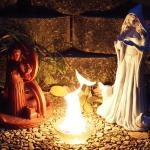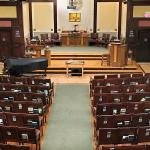With all the threats that Christian Nationalism – and similar movements in other religions in other countries – poses to life and liberty, it’s easy to forget that we’re living in an era of religious decline. Church membership and attendance have been dropping for 60 years, but that decline has accelerated over the past 15 years or so, especially post-pandemic.
Now religious identity is declining too. Previously, people would say “I’m a Christian, I just don’t go to church.” Now they say “I’m spiritual, not religious” or “I’m none of the above.” The United States is finally following the trend started in Europe long ago – it’s now socially acceptable to not be religious.
(Atheism is still viewed with hostility and suspicion by many in the United States. That’s a problem, but not the problem I want to address here and now.)
Not many of the ex-Christians are becoming Pagans. But some are – Paganism is still a growing religion. But we face a unique challenge. We are small, we are diverse, and we are new. We are in our speciation phase – we’re developing many different varieties and variations of Paganism. Over time evolution will do its work. The most well-adapted versions will grown and thrive, while those that are not well adapted to our needs here and now will fade away.
But whereas before we were influenced by the “church model” – congregations with dedicated buildings, professional clergy, and regular programming – in ways that often didn’t serve us well, now we’re influenced by the “none of the above” model – vague spirituality and everybody doing what they say is their own thing but in reality is just what the entertainment and marketing industries tell them they’re supposed to want.
Religion used to be something you were born into and could never leave. Some did leave – I’m one of them – but most couldn’t even think about it. Now religion is something you choose. Our challenge as Pagans is to consciously and actively choose what works for us and not mindlessly latch onto the trend of the moment.
Religion is one of those things that’s hard to define, but we know it when we see it. Our Protestant-dominated culture usually thinks of religion as something you believe – which set of supernatural propositions you affirm and which ones you reject. But belief is only one part of religion, and it’s not the most important part. Instead, religion is about who you are, what you do, and whose you are.
What does that mean in a modern Pagan context?
What follows are not the answers. But they’re my answers, and I think they’re reasonable answers. If you agree, great. If you don’t, state your case for your alternatives. I have no desire to convert you to may way of thinking. I have great desire to persuade you to think through your beliefs and practices, to keep those you find likely and helpful, and to reject the ones you find unlikely and unhelpful.
Paganism as who you are – a part of Nature
Religion exists – in part – to help answer the Big Questions of Life: who are you, where do you come from, where are you going, and most importantly, how should you live while you’re here?
The Universe began with the Big Bang. We don’t know how or why, and I don’t know that we ever will – not with any certainty. Life began on Earth one time and every living creature on this planet is a descendant of that first simple organism. Including us.
Who are we? What are we? We’re part of Nature. Whatever it is that gives us life also gives life to cats and dogs, birds and fish, lakes and rivers, trees and mountains. Our opposable thumbs, big brains, and capacity for language mean we can do amazing things, but we’re not the head of Nature and we’re not its center. We’re one part among many. And we’re connected to all the other parts.
Because we’re part of Nature, we have an obligation to the rest of Nature. The specifics of that obligation are open for debate. Every species modifies its environment to one degree or another… and we must eat other living things or we will die. But at the least, we have an obligation to leave the world a better place than we found it for those who come after us, to not drive other species to extinction, and minimize suffering where ever and however we can.
In an era where people don’t know who they are and where they come from, I’m sure of this much – we are part of Nature.
Paganism as what you do – spiritual practice
Religion isn’t just the Big Questions of Life. Religion is also what you do on a daily basis. I find it helpful to break that up into two categories. The first are the things we do to form and maintain our connections to our Gods, ancestors, allied spirits, and each other – the things we do that build spiritual identity.
For me, this starts with prayer. I begin every morning with Peace to the Quarters and the Druid’s Prayer. At noon I pray for my family, my health, and my sacred calling in this life. In the evening I pray to Nature and the spirits of Nature. And at night I pray to my Gods, to thank them form their continued presence in my life, and to ask for blessings and guidance.
If prayer is speaking to the Gods, meditation is listening for them, contemplating them and their virtues, and thinking about ways to make their values part of your life. Ecstatic experience of divine persons is a wonderful thing, but most of their communication is much more subtle. If we don’t quiet our minds we’ll never hear them.
Offerings are tangible reminders that hospitality and reciprocity are the greatest virtues. The Gods give to us and so we give to them, so they will give to us once again.
Different Pagan traditions have different liturgical calendars, but much of the modern Pagan world follows the Wheel of the Year. This is a good thing. These eight seasonal celebrations keep us connected to the rhythms and cycles of Nature – which is important because we are a part of Nature.
There are many different spiritual practices. These are mine. Do what seems right to you, but do something on a daily, weekly, monthly, and seasonal basis.
Paganism as what you do – build a better world here and now
Our job is not to worship what our ancestors left us. Rather, it’s our job to build on their foundations and make the world better for ourselves and our descendants, and for all who share the Earth with us.
Sometimes we do this together. Politics can be frustrating, but politics is how we get things done on a large-scale collective basis. Some people share our goals but disagree on the best way to implement them – we can work with them. Other people have radically different values and seek to control and harm others – we must defeat them.
Maybe you can run for public office. Maybe you can contribute to the campaigns of candidates who support your values (more or less – no candidate is perfect). At the least, you can vote: in every race in every election.
Sometimes we make the world better by ourselves or in small groups. Look in on your neighbors, give a ride to a friend, pick up trash on the side of the road. Beware of trying to find ultimate meaning in a paying job, but doing an ordinary job honestly and diligently helps keep the world moving.
And sometimes we make the world a better place just by being who we are. We can model the values and behaviors we want to see. We may not be able to change the hearts and minds of those with unhelpful values and regressive politics, but we can show those who are on the fence that “no, not everybody thinks like that.” We can show those who believe they have the “one true religion” that there are many different paths and that almost any of them can be meaningful and helpful.
Don’t tell me what your religion is – show me. Figure out what you can do to make the world a better place.
Paganism as whose you are – building relationships and community
Good religion answers the question “where do I belong?” Traditional ties to Gods, ancestors, and places have been severed in the modern world. Christianity’s denomination-based structure helped with that for a while, but it wasn’t able to hold off the decline caused from telling people they had to believe things they couldn’t honestly believe, and from trying to portray archaic moral codes as divine mandates.
The largest growth in Paganism over the past 50 years or so has come from solitary practitioners. In theory we’re well-suited for this age of do-it-yourself religion. But humans aren’t solitary animals, and religion is something best done together.
We need not – and should not – try to force Paganism into the Christian church model. But there are other models. Over the years Denton CUUPS’ membership has varied from the low teens to over 50, but for 24 years we’ve been a place to gather, celebrate the seasons, and celebrate being Pagan in a place that’s not always welcoming. The tradition witchcraft coven of 13 (more or less) allows practitioners to work together, support each other, and build deep practices. Even just three or four people who get together to do Pagan stuff on a regular basis can build something meaningful and helpful.
But community isn’t just people who share our beliefs and practices. It’s also people who share our values.
The Christian Nationalists are going to lose eventually – they’re a small minority and they’re fighting against the natural human desire for love, pleasure, and self-determination. That they’ve made it this far shows the power of working together diligently over many election cycles.
It also shows the need for us to work together to defeat them sooner rather than later.
We can build working relationships based on shared values, politics, and community interests.
Make decisions mindfully
If you’re over 30, the religious environment you grew up in is steep decline. If you’re under 30, what most of you were told about the way religion works is fading fast.
What will replace it? I don’t know, and I don’t have enough years left to see it all play out. Religion changes slowly.
What I do know is that Paganism is meaningful and helpful to me and to many other people. Trying to copy Christian models didn’t work, and trying to copy “none of the above” models won’t either.
We need to be Pagans and do Pagan things in Pagan ways, regardless of what the mainstream says religion is supposed to be.


